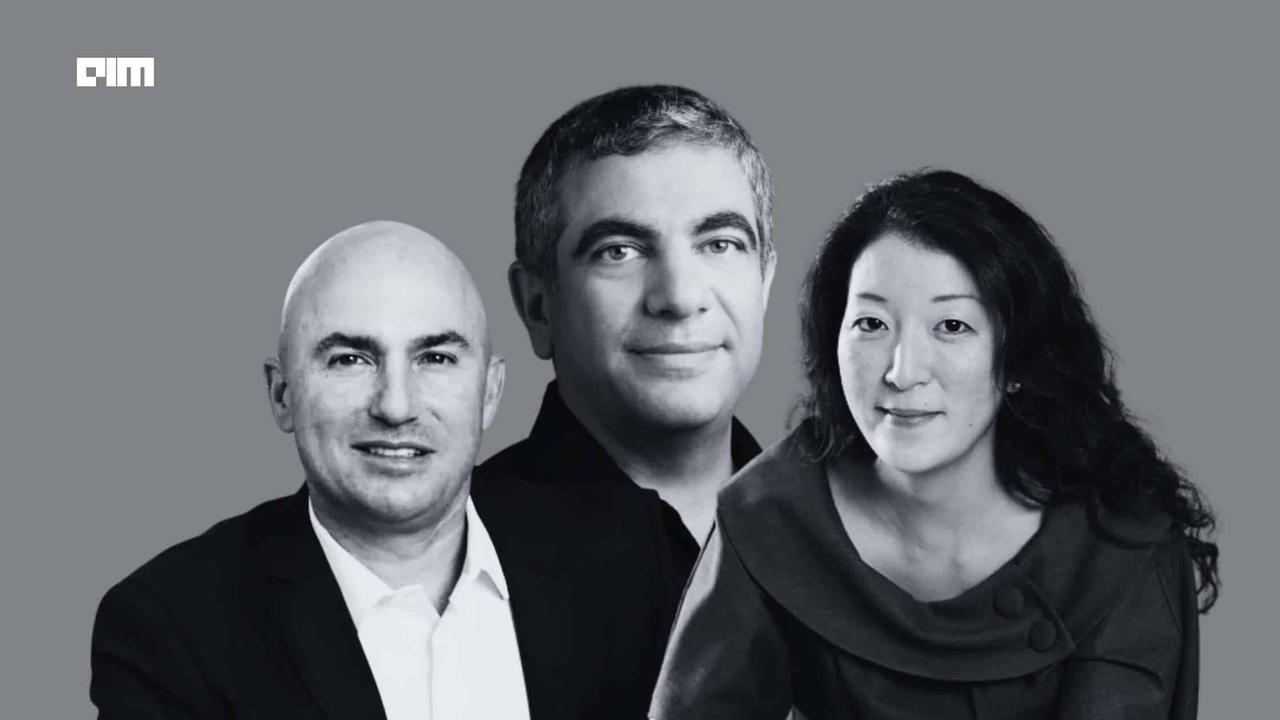Mem0 Raises $24M to Build the Memory Layer for AI Applications
2 Sources
2 Sources
[1]
Mem0 raises $24M from YC, Peak XV and Basis Set to build the memory layer for AI apps | TechCrunch
Taranjeet Singh (pictured right) has launched six companies, with some failing and others seeing varying degrees of success. His seventh, Mem0, could be his defining one. The startup starts with the premise that large language models can't remember past interactions the way humans do. If two people are chatting and the connection drops, they can resume the conversation. AI models, by contrast, forget everything and start from scratch. Mem0 fixes that. Singh calls it a "memory passport," where your AI memory travels with you across apps and agents, just like email or logins do today. The YC-backed startup, launched in January 2024, has raised $24 million ($3.9 million in previously unannounced seed funding and a $20 million Series A.) AI-focused early-stage fund Basis Set Ventures led the Series A, with participation from existing investors Kindred Ventures and Y Combinator, as well as new backers including Peak XV Partners and the GitHub Fund. Notable angels include Dharmesh Shah (HubSpot), Scott Belsky (ex-CPO Adobe), Olivier Pomel (Datadog), Thomas Dohmke (ex-CEO GitHub), Paul Copplestone (Supabase), James Hawkins (PostHog), Lukas Biewald (Weights & Biases), Brian Balfour (Reforge), Philip Rathle (Neo4j), and Jennifer Taylor (former President, Plaid). Having several leaders who helped shape the modern software ecosystem bet on Mem0 (pronounced "mem zero") underscores its promise, and the traction from the four-person team backs it up. So far, the open-source API, which claims to be the most widely adopted memory framework for AI developers, has surpassed 41,000 GitHub stars and recorded over 13 million Python package downloads. In Q1 2025, Mem0 processed 35 million API calls. By Q3, that number jumped to 186 million, growing roughly 30% month over month. Beyond open-source adoption, more than 80,000 developers have signed up for its cloud service. Mem0's cloud API now handles more memory operations than any other provider and serves as the exclusive memory provider for AWS's new Agent SDK. In early 2023, Singh was still in Bangalore, India. He started his career as a software engineer at Paytm, one of India's most valuable startups, before becoming Khatabook's first growth engineer. He quit in late 2022, just as the ChatGPT wave was about to crest, and built one of the first GPT app stores, which scaled to over a million users. That experience led him to create Embedchain, an open-source project that lets developers index, retrieve, and sync unstructured data. As the project took off, earning more than 8,000 GitHub stars, Singh sent over 200 cold emails to founders, investors, and engineers in Silicon Valley. "I reached out to almost every famous tech entrepreneur that you might have heard of and was quite persistent. Some of them responded, and after hearing us out, scheduled us to fly from Bangalore to San Francisco within 36 hours," Singh said. Once in the U.S., Singh reconnected with his longtime friend and now co-founder and CTO, Deshraj Yadav, who had led the AI Platform at Tesla Autopilot. Together, they had previously built EvalAI, an open-source Kaggle alternative that grew to 1.6K GitHub stars. While experimenting with Embedchain, the duo launched a meditation app inspired by Indian yogi Sadhguru. The app went viral in India, but Singh says users kept sharing the same feedback: "Hey, I'm on this meditative journey, but the app doesn't remember that." So they pivoted from Embedchain to Mem0 to solve that problem. The idea of memory for AI isn't new, but it's quickly becoming a critical battleground. OpenAI, for instance, began testing long-term memory features in ChatGPT in early 2024, and its CEO, Sam Altman, has hinted that persistent memory will be central to OpenAI's upcoming hardware device. Other AI labs are also launching experimental memory systems for their agents. Singh argues that while big AI labs are building memory systems, they have little incentive to make them portable or interoperable. "Memory is becoming one of their key moats now that LLMs are getting commoditized," he said. He explains that while consumers can enjoy persistent, personalized experiences in ChatGPT, developers who want to build applications -- say, a finance companion that remembers a user's trading history -- need an open, neutral solution like Mem0. "We want developers to offer day-one personalization through a shared memory network," Singh said. "Think of it as Plaid for memory. That's act two. For now, we're laser-focused on building the best memory product possible." Mem0's framework lets developers store, retrieve, and evolve user memory across models, applications, and platforms. It's model-agnostic, compatible with OpenAI, Anthropic, or any open-source LLM, and integrates directly with frameworks like LangChain and LlamaIndex. Developers use Mem0 to create applications that grow smarter with every interaction: therapy bots that recall past conversations, productivity agents that remember personal habits, and AI companions that adapt over time. Customers range from indie developers to enterprise teams building copilots and automation tools. "We backed Mem0 from its earliest days -- even before YC -- because memory is foundational to the future of AI," said Lan Xuezhao, founder and partner at Basis Set Ventures. "We're doubling down as the team continues to tackle one of the hardest and most important infrastructure challenges: enabling AI systems to build lasting, contextual memory."
[2]
Mem0 raises $24 million from Basis Set Ventures, Peak XV Ventures, others - The Economic Times
San Francisco startup Mem0, founded in 2023, builds memory systems for AI agents, helping them recall past interactions. It raised $24 million, led by Basis Set Ventures, with participation from Peak XV Partners, Kindred Ventures and others. Mem0's API sees fast growth and integrates with platforms like AWS Agent SDK, CrewAI, and Langflow.San Francisco-based startup Mem0, which builds memory infrastructure for AI agents, has raised $24 million in a funding round led by Basis Set Ventures, with participation from Peak XV Partners, Kindred Ventures, GitHub Fund, and Y Combinator. The round also saw participation from several technology executives, including Scott Belsky, Dharmesh Shah, and CEOs such as Olivier Pomel (Datadog), Paul Copplestone (Supabase), James Hawkins (PostHog), Thomas Dohmke (ex-GitHub), and Lukas Biewald (Weights & Biases). Founded in 2023 by Taranjeet Singh and Deshraj Yadav, Mem0 provides a memory layer for AI agents, which are software systems powered by large language models (LLMs) that perform automated tasks. Its platform enables these systems to recall prior user interactions and preferences, improving contextual understanding over time. Mem0's infrastructure uses techniques such as data categorisation, confidence metrics, and decay parameters to retrieve relevant information efficiently. The company says developers can integrate memory into AI systems with minimal code and persistent contextual continuity. "Every agentic application needs memory, just as every application needs a database," said Singh, cofounder and CEO of Mem0. "We're using this funding to become the default memory layer for AI agents and LLMs." The fresh capital will be used to expand Mem0's engineering team, develop enterprise-focussed features, and strengthen partnerships with major AI platforms. According to the company, its application programming interface (API) calls grew from 35 million in Q1 to 186 million in Q3 2025. This number represents the number of times developers used Mem0's platform to store or retrieve AI memory data. Its platform has been integrated into frameworks such as CrewAI, Flowise, and Langflow, and claims to be the exclusive AI memory provider for Amazon Web Services' new Agent SDK. Mem0's founders previously worked with companies like Tesla, Paytm, and Khatabook. "Memory infrastructure is becoming mission-critical for AI personalisation. Imagine a world where all your memories, context, and preferences are stored in a database -- portable across apps through a single 'memory sign-on'. We are excited to partner with Taranjeet and Deshraj at Mem0, which has seen adoption by thousands of developers in leading AI companies," said Arnav Sahu, partner, Peak XV.
Share
Share
Copy Link
San Francisco-based startup Mem0 has secured $24 million in Series A funding to develop memory infrastructure for AI agents, enabling them to remember past interactions and provide personalized experiences across applications.
Funding Round Details
San Francisco-based startup Mem0 has successfully raised $24 million in Series A funding to develop memory infrastructure for AI applications
1
. The round was led by AI-focused early-stage fund Basis Set Ventures, with participation from existing investors Kindred Ventures and Y Combinator, as well as new backers including Peak XV Partners and the GitHub Fund2
.The funding round attracted notable angel investors from across the technology ecosystem, including Dharmesh Shah from HubSpot, Scott Belsky (former CPO of Adobe), Olivier Pomel from Datadog, Thomas Dohmke (former CEO of GitHub), Paul Copplestone from Supabase, James Hawkins from PostHog, Lukas Biewald from Weights & Biases, and Jennifer Taylor, former President of Plaid
1
.The Memory Problem in AI
Mem0 addresses a fundamental limitation in current AI systems: the inability to remember past interactions. While humans can resume conversations after interruptions, AI models typically forget everything and start from scratch with each new session
1
. Co-founder and CEO Taranjeet Singh describes Mem0's solution as a "memory passport," where AI memory travels with users across different applications and agents, similar to how email or login credentials work today.The startup's infrastructure uses advanced techniques including data categorization, confidence metrics, and decay parameters to efficiently retrieve relevant information
2
. This enables AI systems to maintain contextual continuity and improve their understanding over time through persistent memory capabilities.Impressive Growth Metrics
Since its launch in January 2024, Mem0 has demonstrated remarkable traction in the developer community. The company's open-source API has garnered over 41,000 GitHub stars and recorded more than 13 million Python package downloads
1
. The growth in API usage has been particularly striking, with calls increasing from 35 million in Q1 2025 to 186 million in Q3, representing roughly 30% month-over-month growth2
.Beyond open-source adoption, more than 80,000 developers have signed up for Mem0's cloud service, positioning it as the provider handling more memory operations than any other competitor in the space
1
.Related Stories
Founders' Journey and Vision
Taranjeet Singh, who has launched six previous companies with varying degrees of success, views Mem0 as potentially his defining venture
1
. His journey to Silicon Valley began in Bangalore, India, where he worked as a software engineer at Paytm and later became Khatabook's first growth engineer. After building one of the first GPT app stores that scaled to over a million users, Singh sent over 200 cold emails to Silicon Valley leaders, eventually securing meetings that led to his relocation.
Source: TechCrunch
Singh partnered with longtime friend and co-founder Deshraj Yadav, who previously led the AI Platform at Tesla Autopilot
2
. The pivot to Mem0 came while they were developing a meditation app that went viral in India, where users consistently requested memory capabilities to track their meditative journeys.References
Summarized by
Navi
[1]
Related Stories
Recent Highlights
1
Samsung unveils Galaxy S26 lineup with Privacy Display tech and expanded AI capabilities
Technology

2
Anthropic refuses Pentagon's ultimatum over AI use in mass surveillance and autonomous weapons
Policy and Regulation

3
AI models deploy nuclear weapons in 95% of war games, raising alarm over military use
Science and Research








